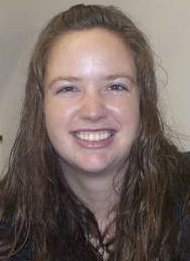Although the Canadian standard of education, according to a BBC article from May 13 of this year, is exceptional sitting at 10th in the world there is a change it is considering regarding the way it teaches mathematics.
According to a C.D. Howe Institute report Canadian students’ math performance has been dwindling on the international front between 2003 and 2012.
This has therefore been tied to the discovery-based learning method, which is currently taught in schools. The discovery-based method is defined as “an inquiry-based, constructivist learning theory that takes place in problem solving situations… Students interact with the world by manipulating objects, wrestling with questions and controversies, or performing experiments,” according to learning-theories.com.
This type of learning is supposed to help students remember concepts better, but when it comes to mathematics there is more to it than simply understanding concepts. For example I would assume multiplication is taught as this number added to itself this many times, so students are told that 2*3 is sorted out as 2+2+2. Now I’m not a teacher so I might be wrong, this is just my impression of what it is.
So, when a student continues in math they’re now applying this to larger numbers and equations, while memorizing the times table isn’t stressed like it was when I was being taught math. However, kids can easily understand the concepts of multiplication and therefore the constants of it could just be memorized instead of breaking things down so much, I would assume.
According to associate professor at the University of Winnipeg, Anna Stokke, teachers should focus 80 percent of their math classes on direct learning like memorizing the multiplication table and doing long division. The human brain can be quicker than a calculator if we groom it.
She told CBC that when students use discovery-learning in math, so are made to draw pictures or use other discovery-learning techniques it actually complicates the process.
I’ve heard grade nine students complaining about being terrible at math, but they’re smart kids. Their complaint was essentially how complicated math was, which they then explained to me how they were being taught. Doing what I considered easy multiplication, the kids hesitated, unsure.
I want to say I was in grade four when I had the nine by nine multiplication table memorized. So, when 7*8 comes up I know it’s 56 because it just always is. I know that it’s because there are seven groups of eight items, that concept wasn’t lost on me even though I was taught through direct learning.
Stokke went on to tell CBC that direct learning is more successful because of its repetitiveness changing working memory into long-term memory: "An expert in mathematics stores a wealth of information in long-term memory, acquired through hours of experience and practice; when a new problem is encountered, knowledge and techniques are recalled from long-term memory to solve it."
So, even though Canada has a ranking of number 10 in the world according to global school rankings done by BBC earlier this year, there is still room for improvement.




